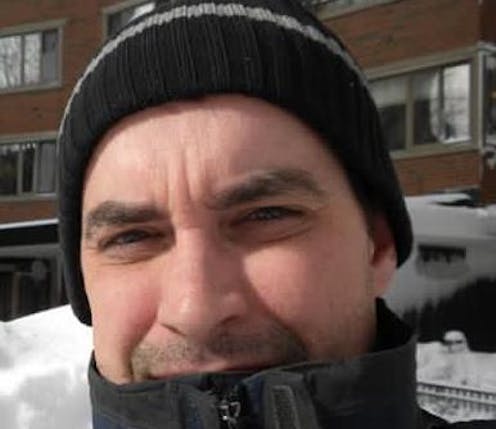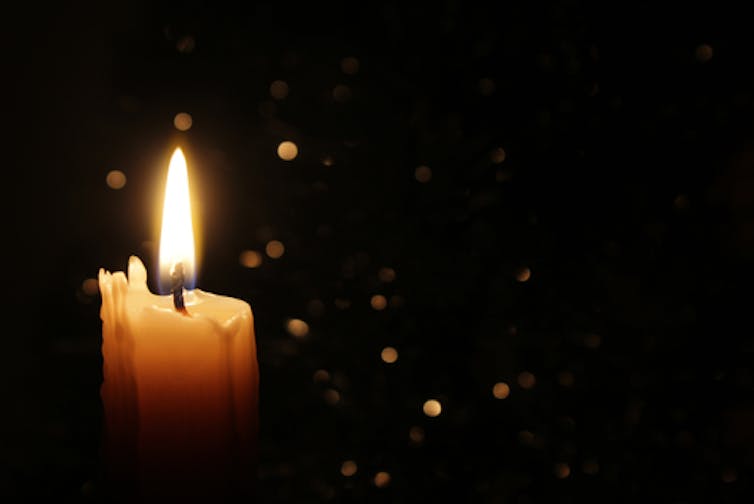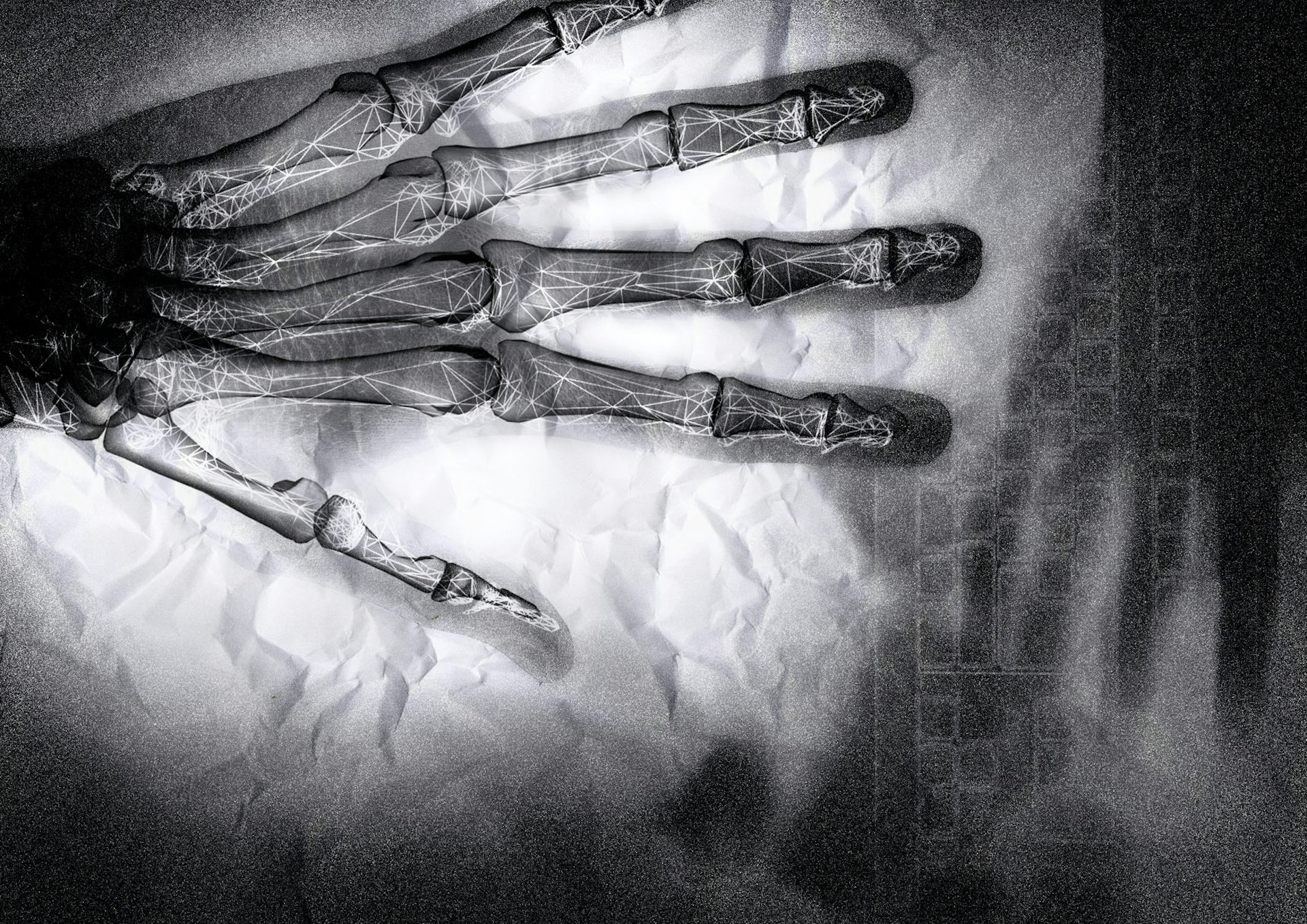When losing one's research partner is like losing a part of oneself
Academic research brings people close together as they collaborate on shared goals and projects that often last decades. Saying goodbye to a collaborator can be as hard as saying goodbye to family.

“If you want to see Rich alive, now’s the time.” I sucked in air as I read the text from his wife.
I knew this was coming. But, I had been hoping for a miracle.
I met my friend Richard Thompson at a mental health grant-writing boot camp at Cornell Medical Center almost 20 years ago. We were both young psychologists hoping to learn how to secure federal funding for our own research. Senior scientists, mainly academic psychiatrists, were presenting seven days’ worth of tips and tutorials on what the National Institutes of Health wanted in a scientifically solid and innovative proposal.
Three oblong tables formed the shape of a U, with our hosts up at the front and in the middle. A wiry waif sat next to me all week, chattering obscenities and disparaging remarks about every other participant. I didn’t have the assertiveness skills then to ask her to quiet down. As I scanned the room, searching for relief, I found him. With horn-rimmed glasses and spiky brown hair, he had a quiet presence and resolve.
Many of the other post-doctoral fellows or junior faculty from all parts of the U.S., mainly top-tier universities, were hypercompetitive. They’d pull you down and stand on your back to get themselves ahead of you. But, not Richard. Never Richard. I would learn this not from that week but from the intervening years as we labored over the conduct of behavior science studies and the write-up of peer-reviewed papers. It’s a lesson I absorbed, and a blessing I had come to receive many times over.
Watching a light go out
I flew to Houston, where Richard now lives with his family. The flight from New York was smooth, but thoughts swirled in my mind. I wondered and worried. How will his wife manage? Will their three-year-old son remember anything about his father, and will this sweet boy find comfort in the handwritten journals filled with love notes that my friend plans to leave behind?

How will I continue our research without the best collaborator and statistician by my side? How would I design, execute and, most importantly, analyze studies without my BFF, a man who joined me on nearly every study, whether I had the grant money to cover his salary support or not?
When I arrived at their two-story, well-manicured, red-brick home, his wife immediately led me to their darkened bedroom. Richard was on his knees, hunched over a navy sofa watching reruns of “Cake Boss.” At 5 foot 10, he was formerly a very toned, 165-pound man. With six months of chemo treatment, a six-week stint in and out of the hospital, and a fairly recent liquid diet, he was down to 120. He was paler than I’ve ever seen him, and the bones in his wrist poked out of his gossamer-like skin. His eyes looked simultaneously sunken and bulging.
I tried not to show surprise, but squeezed his left skeleton shoulder and then bent down for a brief hug. For the next week, I watched him like a light slowly going out.
Most times, I sat cross-legged on the floor next to him and stared at the tiny tube. We watched the Food Network and I feigned interest as the competitors created appetizer, entrée and dessert concoctions using the unusual combination of ingredients assigned to them on “Chopped.” Nothing did it for me. The colorful summer rolls with peanut dipping sauce, the grilled salmon with brown sugar and mustard glaze, not even the three-tiered chocolate cake with a gooey salted caramel topping.
Richard’s daily routine fluctuated between watching reality television cooking episodes while slowly sipping protein shakes or grape electrolyte-tableted water and sleeping. Between the judges’ critiques of the dishes’ presentation, taste and creativity, we talked about his son’s diverse and loving preschool and the fact that he could stay there through the eighth grade, Richard’s concerns for his wife’s well-being and his thoughts on the afterlife. “I believe,” he told me, “And, if there’s nothing there, that’s okay too.” I responded, “I believe too,” hoping there’s a reunion of loved ones waiting on the other side, with gentle winds blowing and a vat of bold Italian red wine, where we all dance barefooted.
I need to believe that Richard will die in peace and love, and that his wife and son will grieve well, and then live happily. Less importantly, I need to trust that my research will go on without my number one man analyzing data by my side.
A heavy weight, and goodbye
Richard’s wife asked if I could take him to the hospital for a blood draw and an appointment with the oncologist. As I wheeled Richard in the low-end design folding chair, I was tempted to hang my heavy, black bag on the attached tall pole. The load felt too much.
As we waited for his blood draw, we chatted about the volunteers in short blue and white pin-striped jackets and how kind they were to bring coffee and graham crackers to the patients and their loved ones. We talked about past bosses and current people in our field, those we liked and those we weren’t particularly fond of. We spoke about this progressive Episcopalian church he had been attending for the past four years, and how the pastor was coming over the next day.
But, after the technician drew Richard’s blood and I wheeled him to the seventh floor for his oncology appointment, our conversation changed. As we sat in the pea-green and light purple plaid waiting area, he said, “I’m glad you’re here. My wife couldn’t bear to hear what the doctor had to say.”
That made sense. Richard’s wife needed to take this in doses; many of us would. The stage four cancer that had started in his colon had proliferated throughout his body, particularly his liver. “The treatments have stopped working,” he paused. “There’s an experimental drug that might buy me another month, but the side effects sound really bad. For what? So I can have a poor quality of life, and my wife and kid have to witness?”
The information sat like a solid weight, pressing above my breasts. I nodded. “I’m going to arrange for hospice to come on Monday,” he said, with whispered voice and flat expression. I could feel myself going into rapid, shallow breathing. As clinical psychologists, we’ve both walked hundreds of people through ways to safely get through an anxiety attack. “Remember what you’ve learned,” I say inside my head. I tried to get myself into a comfortable position and breathe in through my nose. I concentrated on taking the breaths down to my stomach, and then exhaled slowly and smoothly through my mouth. The belly breathing rhythmically kicked in as I listened to my friend talk again about his imagined afterlife.
I wished I could stay until the end, serving as a steady presence and anchor for Richard and his small family. If only I lived closer, I could pop in and out, with picture books and plush stuffed animals for his son, a little prosecco and a broad shoulder for his wife, and a mirror of gratitude and awe for my sweet friend.
As I departed from their home, likely for the last time, I stood on my tiptoes and gave him a huge hug. In a raspy voice, he whispered, “Thanks for everything.” I squeezed his frail frame tighter. “Thank you, Friend,” I responded, “My life is better because of you.”
I knew not to say more. My friend and his wife are emotionally contained people, the stiff upper lip kind, particularly in the face of this ending.
I took one more squeeze and sniffled my way out his bedroom to grab my bags and head for home.
As my first step hit the top stair downward, he yelled, with what I imagine took most of his strength. “Joan?”
Hopping back up and peering in the bedroom, I found him already in his routine kneel-position. “I love you,” he said. “I love you too, Friend,” I said with as much clarity as I could.
“See you,” he replied.
I nodded a few times, my eyes closed, resting for what seemed awhile. “See you.”
Editor’s note: Richard Thompson died Aug. 16, 2018. His funeral is planned for Aug. 22, 2018.
Joan Cook does not work for, consult, own shares in or receive funding from any company or organization that would benefit from this article, and has disclosed no relevant affiliations beyond their academic appointment.
Read These Next
Why ICE’s body camera policies make the videos unlikely to improve accountability and transparency
For body cameras to function as transparency tools, wrongdoing would have to be consistently penalized,…
Artists and writers are often hesitant to disclose they’ve collaborated with AI – and those fears ma
Whether they’re famous composers or first-year art students, creators experience reputational costs…
Honoring Colorado’s Black History requires taking the time to tell stories that make us think twice
This year marks the 150th birthday of Colorado and is a chance to examine the state’s history.






